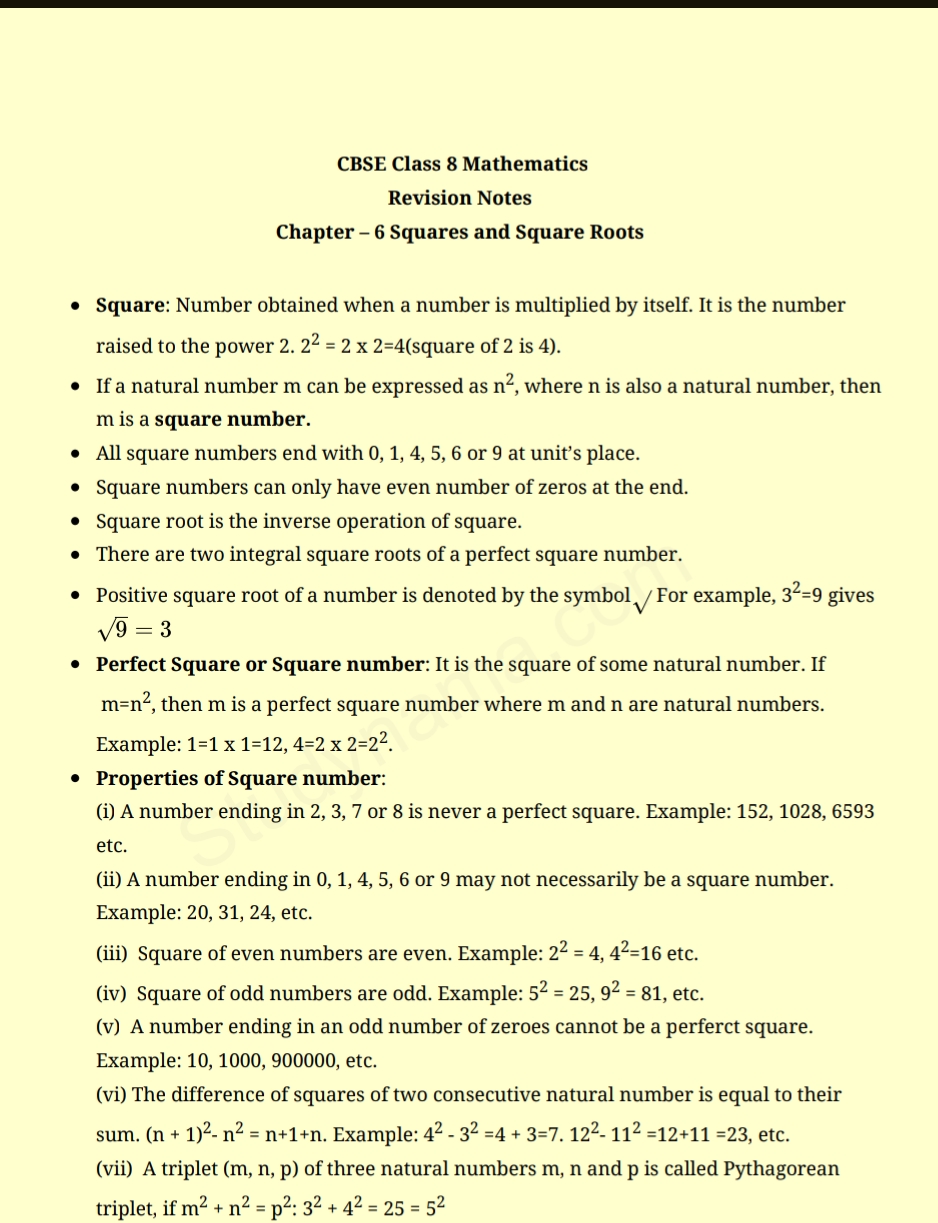What are perfect squares and their properties as outlined in the CBSE Class 8 Mathematics revision notes?

Understand the Problem
The question is related to the concept of square numbers and their properties as presented in a revision note for Class 8 mathematics. It seeks clarity on key definitions and properties regarding square numbers and square roots.
Answer
Square numbers are obtained by squaring natural numbers and have specific properties, including ending in 0, 1, 4, 5, 6, or 9.
Answer for screen readers
Square numbers are numbers obtained by squaring natural numbers. Some properties include that they end in 0, 1, 4, 5, 6, or 9, and they have two integral square roots.
Steps to Solve
- Understanding Square Numbers
A square number is obtained when a natural number is multiplied by itself. Mathematically, for a natural number $n$, the square number can be expressed as $m = n^2$.
- Identifying Perfect Squares
A perfect square number requires that there exists a natural number $n$ such that $m = n^2$. For example, if $n = 3$, then $3^2 = 9$ gives a perfect square number.
- Properties of Square Numbers
Square numbers have specific properties:
- They end in 0, 1, 4, 5, 6, or 9 at the unit's place.
- They can only have even numbers of zeros at the end.
- If a number ends in digits like 2, 3, 7, or 8, then it can't be a perfect square.
- Square Root Notation
The positive square root of a number is denoted by the symbol $\sqrt{n}$. For example, the positive square root of 9 is $\sqrt{9}=3$.
- Examples of Square Numbers
To reinforce understanding, several examples can be provided:
- If $n = 4$, then $n^2 = 4 \times 4 = 16$ (16 is a perfect square).
- If $n = 5$, then $n^2 = 5 \times 5 = 25$ (25 is a perfect square).
Square numbers are numbers obtained by squaring natural numbers. Some properties include that they end in 0, 1, 4, 5, 6, or 9, and they have two integral square roots.
More Information
Square numbers play an essential role in many mathematical concepts, including algebra and geometry. They are foundational in understanding quadratic equations and functions. Additionally, perfect squares are often used in various applications, such as in the Pythagorean theorem.
Tips
- Confusing square numbers with just any whole number. Only specific numbers (natural numbers squared) qualify as square numbers.
- Overlooking the properties of square numbers, such as their last digit or the parity of their components.
AI-generated content may contain errors. Please verify critical information